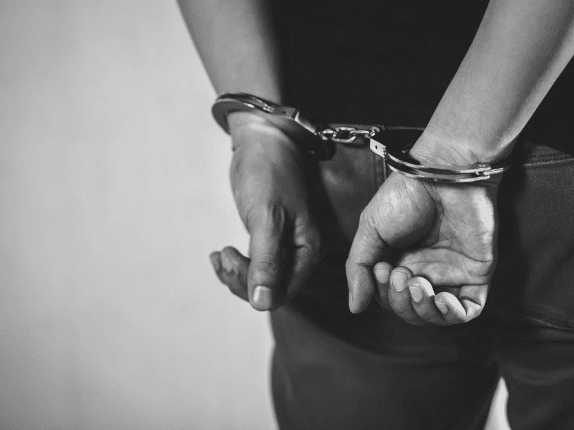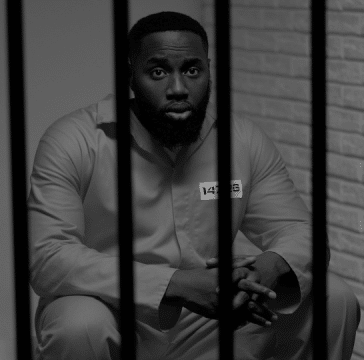Prisoners' Rights
This comprehensive guide on prisoners’ rights covers constitutional protections and critical issues regarding prison abuse. The Police Brutality Center is a staunch advocate for prisoners’ rights, ensuring the incarcerated are treated with the justice and dignity guaranteed by the Constitution. Get informed, get empowered, and join us in the fight against injustice and systemic oppression within our justice system. We are here to help.
Were you or a loved one a victim of police brutality?
Attorneys that work with Police Brutality Center may be able to assist you.
"*" indicates required fields
Content Last Updated: March 3, 2025
The issue of prisoners’ rights is contentious and finds its roots deep within human rights, ethics, and justice. At the intersection of criminal justice and human dignity lies the question of how incarcerated individuals should be treated.
Given current controversies over police misconduct and other systemic problems in the justice system, understanding prisoners’ rights is more crucial than ever. At the Police Brutality Center, we take injustice and mistreatment seriously. We have created an organization that offers prisoners, their families, and others information on steps to take if they know of or suspect prisoner abuse. We also stand with victims and their families to help them seek justice.
What Rights Do You Have as a Prisoner?
Prisoners’ rights are primarily provided by the U.S. Constitution. Even if incarcerated, individuals do not lose all their constitutional rights. Prisoners in federal and state prisons, as well as local jails, maintain certain rights. If an incarcerated person experiences police misconduct or other injustice, they have the right to take legal action. The following are some of the constitutional rights afforded to prisoners.
First Amendment
Incarcerated individuals maintain their First Amendment rights, which protect freedom of speech and religion, meaning they can express their opinions and follow religious practices. However, in prison settings, these rights can be curtailed to maintain order, discipline, and security.
For instance, while prisoners may write letters, prison authorities can screen these for security reasons. They can practice their faith, but certain rituals might be restricted if they pose security risks.
Fourth Amendment
The Fourth Amendment protects citizens from unreasonable searches and seizures. For prisoners, this right is limited.
While prisoners have a reduced expectation of privacy given the nature of incarceration, authorities cannot subject them to searches or confiscate possessions without reasonable cause. For instance, routine searches of cells for contraband are permitted, but these must not be excessive or used as a form of harassment.
Eighth Amendment
This vital amendment safeguards prisoners from cruel and unusual punishment. It ensures that incarcerated individuals receive humane treatment regardless of their crimes. Prisoners have the right not to face unnecessary suffering.
The Eighth Amendment requires that prisoners receive adequate medical care and humane living conditions. It also prohibits excessive physical force or intentional harm by staff or other inmates.
Fourteenth Amendment
Ensuring fairness within the judicial process, the Fourteenth Amendment grants prisoners the right to due process. Even after their initial sentencing, if additional rights or privileges are to be removed, such as parole eligibility or access to certain programs, the prisoner must be informed and given a chance to challenge or appeal these decisions.
These rights also prevent arbitrary punishments and ensure incarcerated individuals receive fair treatment throughout their sentences.
What Rights Do Disabled People Have
in Prison?
Incarcerated individuals with disabilities are protected by laws such as the Americans with Disabilities Act and the Rehabilitation Act of 1973. These laws mandate that prisons and jails provide necessary accommodations, ensuring disabled prisoners can access prison services, programs, and activities equitably.
Thus, prisons may need to provide wheelchairs, sign language interpreters, or tailored medical care. In essence, prisons must ensure a disability doesn’t exacerbate the challenges of incarceration. Failure to provide these accommodations can be deemed discriminatory, underlining the significance of acknowledging and addressing the unique needs of disabled prisoners.
What Rights Do Pregnant Women Have in Prison?
Pregnant women in prison have distinct rights to ensure their health and the well-being of their unborn children. They are entitled to adequate prenatal care, which includes regular check-ups, a nutritious diet tailored to their pregnancy needs, and postnatal care.
Many jurisdictions also prohibit the shackling of pregnant inmates during childbirth, recognizing the potential harm and discomfort it can cause. Moreover, given increased vulnerability during pregnancy, prisoners have the right to housing in environments free from violence or threats. Overall, these rights underscore the importance of humane treatment and the recognition of the unique needs of incarcerated pregnant women.
Are There Protections Against Religious Discrimination in Prison?
Under the First Amendment, incarcerated individuals retain the right to practice their religion and are protected from religious discrimination. The Religious Land Use and Institutionalized Persons Act also safeguards prisoners’ religious freedoms. It dictates that prisons accommodate inmates’ religious beliefs and practices unless there’s a compelling security reason not to.
Therefore, prisoners can participate in religious rituals, consume specific diets, or wear religious attire. The key principle here is that, while in custody, an individual’s faith must be respected and facilitated unless it directly threatens the institution’s safety and operational integrity.

What Is Prison Abuse?
Prison abuse refers to the spectrum of unjust, harmful, and neglectful behaviors that prisoners may face while incarcerated. Often overshadowing human rights and rehabilitation principles, these abuses are a persistent stain on the justice system. In some cases, prison abuse and police brutality occur.
- Sexual assault in prison: One of the most devastating forms of abuse, sexual assault can be committed by prison staff or fellow inmates. Such violations can lead to severe physical and psychological trauma, with countless instances likely unreported due to fear of retaliation.
- Physical assault: Physical abuse can range from excessive force by guards to gang-related violence or conflicts between inmates. Simple acts, such as misusing restraints or a forceful push, can escalate to serious injuries or even fatalities.
- Medical neglect: Withholding essential medications or delaying medical care represents another covert form of abuse. Especially for those with chronic conditions, such neglect can result in dire complications or deteriorate one’s health rapidly.
- Protection failures: Prisons are duty-bound to ensure inmates’ safety. Failing to curb foreseeable violence or not intervening in ongoing altercations violates prisoners’ rights.
Prison abuse is not just a singular act. It is a series of violations that harm incarcerated individuals. Awareness and action against these abuses remain paramount for upholding justice and dignity.
Dangers of Solitary Confinement
Solitary confinement, often perceived as a necessary tool for maintaining prison order, carries profound psychological and physiological impacts. This practice involves isolating prisoners in a small cell for 22 to 24 hours a day, sometimes for extended periods.
One immediate danger is the onset of severe mental health problems. Deprivation of human contact and sensory stimuli can accelerate anxiety, depression, and hallucinations. Over time, inmates might experience “prison psychosis“—a condition characterized by paranoia, aggressive fantasies, and cognitive disorders.
Physiologically, extended isolation can result in insomnia, hypertension, and heart complications. Furthermore, the absence of meaningful activities leads to cognitive decline and decreased neural activity. Post-release, former inmates subjected to solitary often face heightened challenges in reintegrating into society. Considering these severe implications, it’s vital to reevaluate the prevalent use of solitary confinement and its long-term effects on inmate well-being.
How Common Is Prison Abuse?
Unfortunately, prison abuse is not a rare occurrence. According to the Bureau of Justice Statistics, thousands of inmates report experiencing sexual violence each year, and many more instances of physical abuse and neglect go unreported due to fear of retaliation.
Prisoner abuse is not just sexual. It can include extended time in solitary confinement, humiliation, and other forms of physical abuse.
It is also worth noting that people of color tend to have more reports of abuse, which some claim is due to racial profiling.

What Can I Do if I or a Friend or Family Member Is Experiencing Abuse in Prison?
If you or a loved one is experiencing abuse in prison, taking the following immediate steps is paramount:
- Documentation: Meticulously record every incident, capturing dates, times, and specific details. Collect and preserve any physical evidence, such as photographs or medical records.
- Filing a CRIPA complaint: The Civil Rights of Institutionalized Persons Act allows the Department of Justice to take action against institutions violating individuals’ civil rights. Filing a complaint under CRIPA can highlight systemic abuses and trigger investigations.
- Civil rights lawsuit: If the abuse continues or there’s no satisfactory response to the complaint, consider filing a civil rights lawsuit. Such a step might require the expertise of an attorney.
- Consult a civil rights lawyer: Having legal counsel can offer invaluable guidance. They can help navigate the complexities of prison abuse cases and staunchly defend your or your loved one’s rights.
- Reach out for support: There are organizations dedicated to supporting prisoners’ rights that can provide resources and additional avenues for redress.
Remember, incarceration does not strip an individual of their basic human rights. Taking action is a right and a responsibility to protect oneself and others from injustices within the prison system.
Reflecting on Prisoners' Rights
Prisoners’ rights are moral and legal responsibilities that societies must uphold. From understanding the protections granted by the Constitution, advocating for those who have been wrongfully convicted, to addressing the grave issue of prison abuse, everyone has a role to play.
Contact us today if you would like to get legal help for your situation or want to stay informed. We advocate for victims of police brutality and can help you stand up to these situations and fight for your rights.

